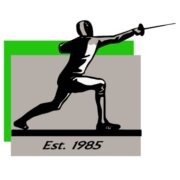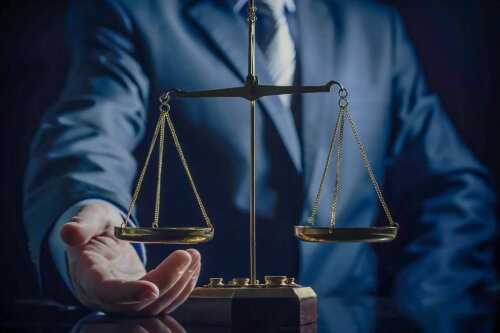Best Drunk Driving Lawyers in White River
Share your needs with us, get contacted by law firms.
Free. Takes 2 min.
List of the best lawyers in White River, South Africa
About Drunk Driving Law in White River, South Africa
Drunk driving, or “driving under the influence” (DUI), is a serious criminal offence in White River, as it is across South Africa. The law aims to ensure road safety and protect the public from accidents caused by drivers operating vehicles while impaired by alcohol or drugs. In White River-a bustling town in Mpumalanga province-law enforcement regularly conducts roadside checks and breathalyser tests, especially during holidays and weekends. Being convicted of drunk driving can result in severe legal consequences, including fines, imprisonment, and license suspension.
Why You May Need a Lawyer
Many people who are charged with drunk driving in White River may be unfamiliar with the legal process and the serious penalties they face. You may need a lawyer if:
- You have been stopped or arrested for suspected drunk driving.
- You failed a breathalyser or blood alcohol test and are unsure of your rights.
- You believe the police did not follow correct procedures during your arrest.
- This is not your first offence and you face harsher penalties for repeat offences.
- You are facing the possibility of losing your driver’s license or your job as a result of the incident.
- You wish to contest the charge or negotiate a plea deal.
Legal professionals can help protect your rights, assess the strength of the evidence against you, and advise on the best course of action.
Local Laws Overview
Under South African law, it is illegal to operate a motor vehicle on a public road:
- With a blood alcohol concentration (BAC) exceeding 0.05 grams per 100 millilitres of blood for private drivers.
- If you are a professional driver (such as a taxi, truck, or bus driver), the limit is much lower, at 0.02 grams per 100 millilitres of blood.
- With a breath alcohol concentration exceeding 0.24 milligrams per 1 000 millilitres of breath.
Police regularly set up roadblocks in and around White River to test drivers. Failing these tests may result in immediate arrest. Convictions can result in heavy fines, imprisonment (up to six years), and the suspension or cancellation of your driver’s license. Repeat offenders face more severe penalties. Courts consider any aggravating factors, such as causing an accident or injuries while under the influence, very seriously.
Frequently Asked Questions
What happens if I am stopped for drunk driving in White River?
If stopped, the police may require you to take a breathalyser test. If you fail, you may be arrested and taken for a blood test to confirm your BAC. You may be detained until bail is posted or a court appearance is scheduled.
Can I refuse a breathalyser or blood test?
Refusing a lawful instruction to provide a breath or blood sample is itself an offence under South African law and can lead to arrest and prosecution.
What are the penalties for a first-time offence?
Penalties for a first offence can include a fine of up to R120,000, imprisonment up to six years, or both. The court may also suspend or revoke your driver’s license.
Will I get a criminal record if convicted?
Yes. A DUI conviction in White River results in a criminal record, which can impact your employment opportunities and travel.
How can a lawyer help me with my case?
A lawyer can evaluate the evidence, represent you in court, help negotiate plea deals, and ensure the police followed correct procedures. Legal advice can make a significant difference in the outcome.
Are there ways to challenge a drunk driving charge?
Yes. Common defences include improper procedures during testing or arrest, faulty or uncalibrated testing equipment, or insufficient evidence.
How soon after arrest should I contact a lawyer?
It is best to contact a lawyer as soon as possible after being arrested or charged, ideally before you make any statements to the police.
What if I am a tourist or visitor facing a DUI charge?
South African law applies to all drivers. Immediate legal assistance is highly recommended, and your embassy or consulate can also provide support.
Can I drive while my case is pending?
This depends on the terms set by the court or police. Sometimes, your license may be suspended immediately; consult with your lawyer about your specific situation.
If I am convicted, can I get my license back?
Typically, after serving a suspension period and meeting any court requirements (such as attending rehabilitation or paying fines), you may apply for reinstatement subject to approval by the authorities.
Additional Resources
If you need advice or support regarding drunk driving charges in White River, the following resources may be useful:
- South African Police Service (SAPS): For reporting incidents, obtaining statements, or procedural information regarding arrests.
- Department of Transport: For driver’s license queries, reinstatement procedures, and legal compliance information.
- Legal Aid South Africa: Provides assistance to those who cannot afford a private lawyer.
- Road Traffic Management Corporation (RTMC): Public education and resources regarding road safety and traffic laws.
- Local attorneys: Many law firms in White River and Mpumalanga offer initial consultations for DUI-related cases.
Next Steps
If you are facing a drunk driving charge in White River, consider the following steps:
- Do not admit guilt or make statements to the police without legal representation present.
- Contact a qualified lawyer who has experience with DUI cases in White River.
- Gather and keep safe all documentation related to your arrest and any police interactions.
- Understand your rights regarding bail and legal counsel.
- Prepare for your court appearance-your lawyer will help with paperwork, plea options, and defence strategies.
- Utilize available resources, such as Legal Aid or guidance from governmental bodies.
Remember, acting quickly and seeking professional legal advice can significantly affect the eventual outcome of your case.
Lawzana helps you find the best lawyers and law firms in White River through a curated and pre-screened list of qualified legal professionals. Our platform offers rankings and detailed profiles of attorneys and law firms, allowing you to compare based on practice areas, including Drunk Driving, experience, and client feedback.
Each profile includes a description of the firm's areas of practice, client reviews, team members and partners, year of establishment, spoken languages, office locations, contact information, social media presence, and any published articles or resources. Most firms on our platform speak English and are experienced in both local and international legal matters.
Get a quote from top-rated law firms in White River, South Africa — quickly, securely, and without unnecessary hassle.
Disclaimer:
The information provided on this page is for general informational purposes only and does not constitute legal advice. While we strive to ensure the accuracy and relevance of the content, legal information may change over time, and interpretations of the law can vary. You should always consult with a qualified legal professional for advice specific to your situation.
We disclaim all liability for actions taken or not taken based on the content of this page. If you believe any information is incorrect or outdated, please contact us, and we will review and update it where appropriate.









